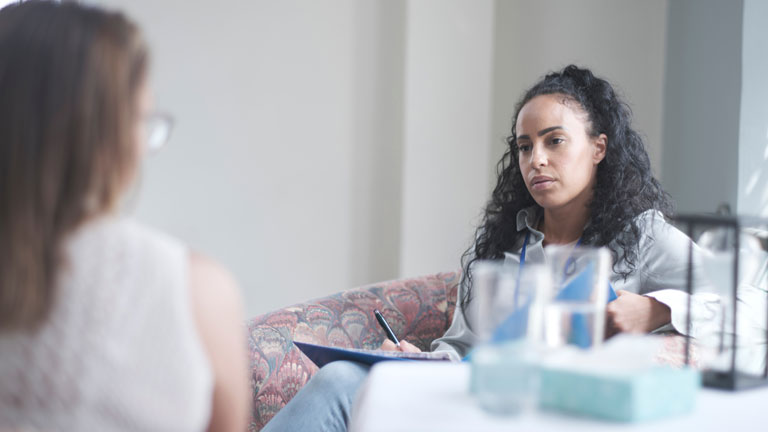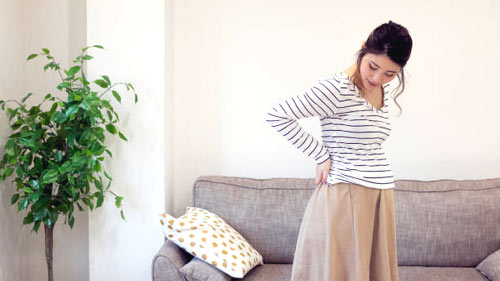
There is really only one person who can answer that question – it is you. I would say that if you yourself think that your worries, ruminations, or unpleasant feelings are taking up too much – seek help. There are so many fantastic tools and tools that can help you to a better life. Don’t hesitate to learn them – we only have one life (at least I think so…)
See your doctor or find an anxiety therapist before your anxiety gets worse. It is easier to treat anxiety if you get help early.
Why Seek Help Online At All?
There can be many reasons why online help and therapy is a good solutions for you.
It can, for example, be that you:
- have a busy everyday life where you (right now) can’t figure out how to find time
- are too stressed to make an appointment outside the house
- is too anxious to leave home
- live abroad and want Danish-language help
- is out and about
- and much more.
How Does Online Therapy / Coaching Take Place?
There can be different ways in which you can receive online therapy and anxiety coaching.
Here are some different options:
- online therapy over the phone
- online therapy via Skype or Zoom
- online help via email, etc.
What Is Anxiety?
Occasional anxiety is a normal part of life. When you have an anxiety disorder, you will experience an often intense, excessive, and persistent worry and fear of everyday situations. Often, anxiety disorders involve repeated episodes of sudden feelings of intense anxiety that can reach a height within minutes (panic attacks).
These feelings of anxiety and panic that interfere with daily activities are difficult to control and are out of proportion to the actual danger. To prevent anxiety, you avoid places or situations. Symptoms of anxiety can start in childhood, adolescence, or adulthood.
Examples of anxiety disorders include generalized anxiety disorder, social anxiety disorder (social anxiety), specific phobias, etc. You may have more than one anxiety disorder.
Symptoms Of Anxiety
Common anxiety signs and symptoms include:
- Feeling nervous, restless, or tense
- Have a sense of impending danger, panic
- Increased heart rate
- Rapid breathing (hyperventilation)
- Sweating
- The shaking
- Feeling “weak” or tired
- Difficulty concentrating or thinking about anything other than the current concern
- Have trouble sleeping
- Has difficulty controlling their worries
- Want to avoid things that trigger anxiety
There Are Several Types Of Anxiety Disorders
There are as many forms of anxiety as there are people who suffer from anxiety. However, it has been chosen to divide them into groups that basically have several things in common. In other words, you can easily experience other work anxiety coach than those described below.
Agoraphobia is when you fear and often avoid places or situations that may cause you to panic and make you feel trapped, helpless, or embarrassed.
Generalized anxiety includes persistent and excessive anxiety and worries about activities or events—even common, small, everyday problems. The worries are out of proportion to the factual situation, are difficult to control, and affect how you feel physically. Generalized anxiety often occurs together with other anxiety disorders or depression.
Panic disorder involves repeated episodes of sudden feelings of intense anxiety that reach a high on the anxiety scale within minutes (panic attacks). You may have feelings of impending illness, accident or death, shortness of breath, chest pain, or rapid heartbeat. These panic attacks can lead to worrying about them happening again or avoiding situations where they occurred.
Separation anxiety is a childhood disorder characterized by anxiety that is excessive for the child’s developmental level and relates to separation from parents or others who have parental roles.
Social anxiety (social phobia) involves a high level of anxiety, fear, and avoidance of social situations due to feelings of embarrassment, self-consciousness, and concern about being judged or evaluated negatively by others.
Specific phobias are characterized by great anxiety when you are exposed to a certain object or situation and have the desire to avoid it. Phobias can trigger panic attacks.
Other specified anxiety disorders and unspecified anxiety disorders are conditions of anxiety or phobias that do not meet the exact criteria of other anxiety disorders but are significant enough to be disruptive.




